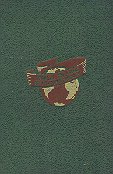 The little book troll of Mount Benson gave me this book (for my birthday, I think) a couple years ago. I have been slowly reading it one story at a time in between novels. Howard's short stories are so turgid and dense that you don't want to read one right after the other. It's best to take each story as a little novella on it's own and get right into it.
The little book troll of Mount Benson gave me this book (for my birthday, I think) a couple years ago. I have been slowly reading it one story at a time in between novels. Howard's short stories are so turgid and dense that you don't want to read one right after the other. It's best to take each story as a little novella on it's own and get right into it.These are all short stories that take place in and around Afghanistan, during the period of Great Game. Most of the stories feature El Borak, a wild Texan who long ago adopted the ways of the desert and mountain people. He respects their culture and lives among them, but he also has to lay the beat down on them often when their naturally savage ways come to the fore. He delivers the same treatment to Europeans of weak moral fibre who come to this land to exploit and plunder.
The final story stars Kirby O'Donnel, whose exploits I had quite enjoyed in another paperback I found that were just about him. Those took place on the docks of pre-war Shanghai and he was mainly a boxer and dockman. Here, Kirby is in the desert as well, I guess just part of a world-jumping sailors many adventures.
Great stuff all around. There is a reason Howard is considered a master today. He always delivers and it is cool to read his fierce, adventuresome writing in a different context than Hyboria.
This collection was put together by Girasol Collectibles, who have been reprinting Howard's works (as have some other publishers). It is really great to be able to finally read Howard's work on its own as well as to find all these other lost gems that he produced.
 I found this book at the local thrift store. The sub-title is "A Story of Cannibalism in an Open Boat" and it has real pictures of a cool old freighter as well as the old salts who were on her. It's an old book, yellowed pages, dust jacket long since gone, part of the "Lowell Thomas Adventure Library". I learned later that Lowell Thomas was a promoter, radio announcer and general publicity guy who was very well known in the 20s, 30s and 40s. He is credited for making famous the story of Lawrence of Arabia. I put this in context because it was weird to me that he is credited as the author of this story, considering that he only wrote the first chapter and the rest was written by Fred Harmon, the guy who actually lived the story. It's funny, because the first chapter is really floridly written and almost discouraged me from continuing. Fortunately, the rest of the book is really clear and direct. As Thomas (slightly patronizingly) says "an extraordinary simplicity and graphic power, with that strength and reality which a man unschooled to writing and to literary artifice can achieve when the impressions of some fearful crisis have graven themselves on his brain."
I found this book at the local thrift store. The sub-title is "A Story of Cannibalism in an Open Boat" and it has real pictures of a cool old freighter as well as the old salts who were on her. It's an old book, yellowed pages, dust jacket long since gone, part of the "Lowell Thomas Adventure Library". I learned later that Lowell Thomas was a promoter, radio announcer and general publicity guy who was very well known in the 20s, 30s and 40s. He is credited for making famous the story of Lawrence of Arabia. I put this in context because it was weird to me that he is credited as the author of this story, considering that he only wrote the first chapter and the rest was written by Fred Harmon, the guy who actually lived the story. It's funny, because the first chapter is really floridly written and almost discouraged me from continuing. Fortunately, the rest of the book is really clear and direct. As Thomas (slightly patronizingly) says "an extraordinary simplicity and graphic power, with that strength and reality which a man unschooled to writing and to literary artifice can achieve when the impressions of some fearful crisis have graven themselves on his brain."


